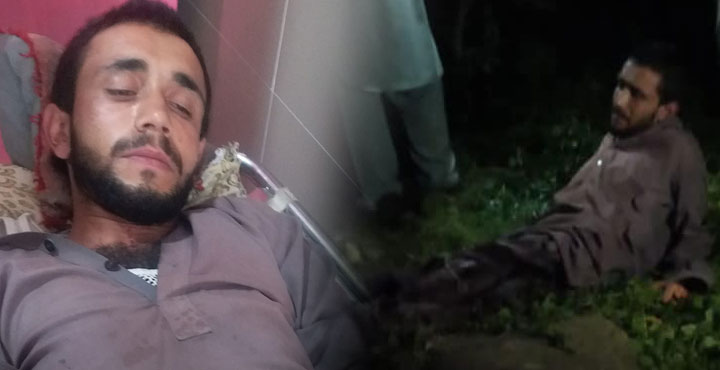By: Prof. Abdul Shakoor Shah
Dengue’s four serotypes originated approximately 1000 years ago and from the past few hundred years, it started infecting humans. Now it is rampant worldwide in recent decades. Nearly half of the world’s half populace is now at stake. Annually dengue infection ratio is projected at 100-400 million of which 96 million marked clinically severe dengue. Notwithstanding the existing infection peril in 129 countries, 70% of the actual burden is in Asia. The number of dengue cases reported to WHO increased over 8 fold over the last two decades, from 505,430 cases in 2000 to over 2.4 million in 2010, and 5.2 million in 2019. Reported deaths between the years 2000 and 2015 increased from 960 to 4032. The global burden of the ailment is uncertain. Before 1970, only 9 countries had experienced intense dengue epidemics. Now it is endemic in more than 100 countries. South-East Asia and Western Pacific regions are severely inflicted with Asia representing 70% of the global burden of disease. Its outbreak is consistent both in the number of cases and regions. It is anticipated that dengue can spread in Europe as the local transmission was reported in France and Croatia in 2010 along with three other European countries. Within two years, it spread to 10 European countries resulting in over 2000 cases in 2012. Dengue is the second most diagnosed cause of fever after malaria. In 2020, dengue affected numerous countries. In 2021, dengue continues to affect several countries including Pakistan. The COVID-19 pandemic is placing mammoth stress on health care and management systems worldwide. WHO has accentuated the substance of sustaining efforts to prevent, detect and treat vector-borne diseases such as dengue during this critical period?
The pooled brunt of COVID-19 and dengue epidemics can potentially result in devastating consequences for the populations at risk. Global ever dengue was observed in 2019. The American Region alone reported 3.1 million cases, with more than 25,000 classified as severe. Bangladesh reported (101,000), Malaysia (131,000) , Philippines (420,000), Vietnam (320,000) in Asia. 2016 was also characterized by a large dengue epidemic with America reporting more than 2.38 million, Brazil 1.5 million cases which are three times higher than 2014. The Western Pacific Region reported more than 375,000 suspected cases of which the Philippines reported 176 411 and Malaysia 100 028 cases, representing a similar burden to the previous year for both countries. The Solomon Islands declared an outbreak with more than 7000 suspected. In the African Region, Burkina Faso reported a localized outbreak of dengue with 1061 probable cases. A 53% decline in severe dengue cases was also observed during 2017. Dengue patients have doubled during the last decade.
In Pakistan, Dengue may be observed throughout the year but the high dengue inflectional period is from October to December. According to the World Bank, Pakistan’s one-fourth of the population lives below the poverty line. The inadequate healthcare amenities result in the spread of several diseases including dengue. Dengue is once again spreading its claws in Pakistan. The hospitals in Punjab illustrate a full-scale dengue outbreak. The rest of the provinces are also being reported about dengue devastation. In 2019, there were 50,000 infected people across the country. Our hospital system can simply not cope with such an epidemic at this point when Covid patients continue to occupy beds in hospitals across the country. Covid-19 is subsiding while dengue is becoming rampant. It is the result of the absence of preventive measures by the state. It seems we are just passing the jam and have no future strategy. Dengue is the result of our poor management and sanitary system. Our city and village streets are littered with filth and dirt. The sanitation department seems to be dreaming. We have already suffered a lot due to dengue in 2019 and we have learned nothing from the past. Now it is covid-19 period, we cannot afford another fatal disease as we are fully conscious of the fact that we are not equipped with the apparatus and training as well as space to cope with dual disease. The medication capacity of the population has broken down. Masses are puzzled how to make both ends meet in such sky-scraping dearness. There is no remedy for the anguish our poor masses are undergoing. They are less concerned about their health care rather they are reckoning from where and how they will get their next meal. The question of a welfare society has diminished from the people’s minds. If the prevailing situation remains consistent, the demoralization of the nation may reach to an extent where they might not bother about nationalism or patriotism rather they would think about how to fill their bellies with edibles. The prices of life-saving medicines have been dispatched to Mount Caucasus. Now the poor man cannot even dream of living. The dengue rampant has maddened the mobs about their life. The government hospitals are jam-packed and the poor masses cannot afford private hospitals. The havoc of covid-19 has shattered the financial backbone of the people. It is the fundamental duty of the state to ensure the basic necessities of life to the inhabitants for their survival. The sudden and alarming boost in fuel prices has pushed fatal dengue disease out of the minds of the people. The non-preventive measures for urbanization, globalization, modern air transport, water and waste management ground the rapid infestation of the environment with dengue. This massive increase of dengue can be curtailed by modulating our environment.
The Writer is Prof. in English and Freelance Columnist, based in Lahore, Pakistan. He can be reached at [email protected]








